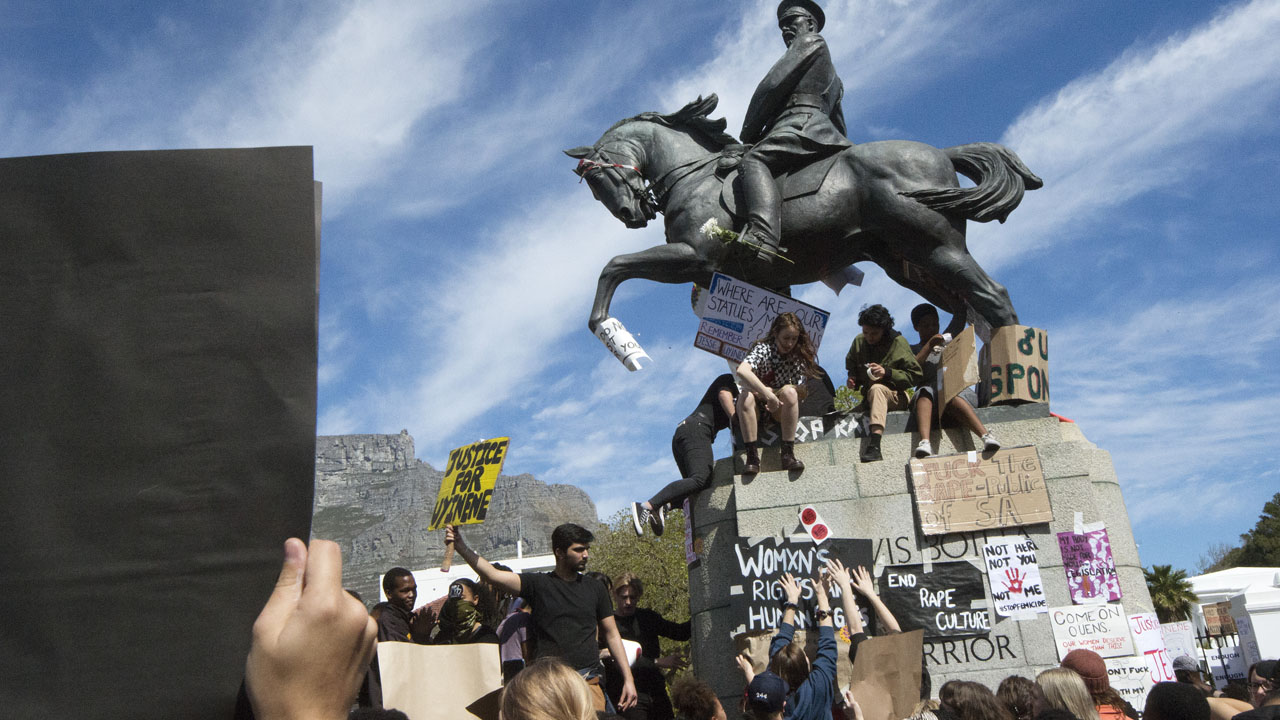
“Moffie” shows how young men from the white minority were indoctrinated and brutalised during their compulsory military service by the former apartheid regime.
In a country often at odds “about whose hurt is worse”, and where the black majority’s suffering was so obviously greater, director Oliver Hermanus said there was also a need to unpack this other “unspoken trauma”.
The movie draws its title from a vicious Afrikaans insult used by all races to denigrate gay men, but which Hermanus said is equally deployed as a “weapon to shame any man for being weak, effeminate or not good enough”.
It is almost the definition of “toxic masculinity”, he told AFP in Venice, where Variety hailed his film as a “piercing, perfectly formed… scaringly brilliant anatomy of white South African” maleness.
The tense drama premiered as women staged the second day of protests in Cape Town after a wave of rapes and murders.
It tells how a group of teenage conscripts are broken down by brutal military training before being sent to fight in Angola in 1981, where South Africa helped sustain a decades-long civil war fuelled by the Cold War.
‘Dangerous’ white men
In the army, white men were taught to kill and defend the racist segregationist system, Hermanus said.
“Just as white people have perceptions of black people, black people have perceptions of white people,” said the director, who comes from the Cape Coloured community, which was also persecuted under apartheid.
“White men are dangerous, white men are aggressive. Why is there that terror you sometimes feel around a group of white men? This film is questioning all that,” he added.
Thousands of white men carry the shame of having fought for “a bad country, a bad government… in a pointless war”, the filmmaker insisted, while after apartheid they were “urged to move on and forget the past”.
“There wasn’t an opportunity to let it out,” Hermanus said.
“There are lots of 45-year-old and up white men walking the streets potentially with the memory of killing someone but who have never spoken about it,” he said.
“Silence and repression of trauma permeates our society. We are having a huge conversation now about gender-based violence… about how men treat women.”
He said his films asks what “is it in our society where we are holding so much in that it comes out in violence?”
Recreating apartheid
Hermanus put his young cast through more than a month of old-style army training, weirding many out with a baptism of fire in a racist mindset the post-apartheid generation had not been exposed to.
Kai Luke Brummer, who plays the lead, a young conscript who falls for another soldier in the film’s repressed gay love story, said it was “freaky and slightly traumatic”, not least only hanging around with other white people.
Under apartheid, only white people were allowed to serve in the South Africa military.
“The abuse you got in the training felt like it seeped into your bones,” Brummer told AFP.
“Living that at a critical time in your life, aged 17 or 18, it forms the person that you are, and it is just damage,” he said.
The experience helped Brummer relate to his father, who was pressed into the so-called Border War in what is now Namibia and Angola but who had never talked about it.
As he researched his role, his father “started opening up about it and it has really bettered our relationship,” he said.
It also opened his eyes to what older white men were carrying.
“I come from a mixed-race family. I have a black adopted brother,” the actor said.
So for his father “coming from being in the army fighting the ‘terrorists’ to having a black son, the shift has been so immense.
“People are trying to do better and move away from the past, but until it and everyone’s pain is addressed we can’t hope to move forward.”
The movie also brings up the notorious Ward 22 in a military hospital near the capital Pretoria where gay recruits were subjected to electric shock therapy, hormone treatment and chemical castration in the 1970s and 1980s by psychologist Colonel Aubrey Levin.
Even as a gay man, Hermanus was unaware of what had gone on there until he began researching the film.
“Moffie” is one of two South African films at the Venice film festival, with “Waiting for the Barbarians”, based on J. M. Coetzee’s novel, and starring Johnny Depp, premiering Friday.



